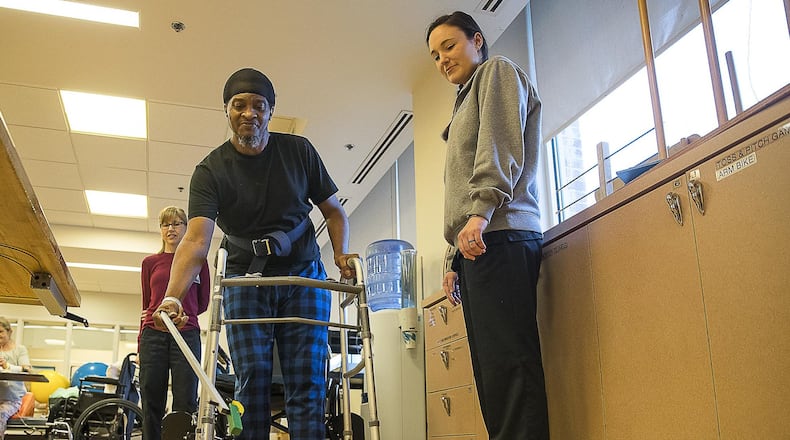The historic Georgia hospital that said a federal payment dispute pushed it toward closing is now out of danger, hospital representatives said.
Roosevelt Warm Springs Rehabilitation Hospital, originally established by Franklin Delano Roosevelt to treat polio, has settled its payment dispute with the federal agency that runs Medicare.
The hospital will have to pay back some money, but no staff or services will be cut, said Christen Engel, a spokeswoman for the hospital’s current owner, Augusta University Health. Medicare will accept about half the $585,000 it says it should never have paid the hospital. In return, the hospital will drop its lawsuit assailing Medicare’s audit process, which has frequently been found in error upon appeal.
Engel wrote in an email that “the hospital was pleased with the outcome and looks forward to continuing to provide excellent patient care.”
Roosevelt Warm Springs treats about 400 patients a year for a variety of mobility and function disorders, including strokes, and neurological and orthopedic conditions. It was originally established by FDR, who had come to the Warm Springs area to try out its soothing mineral spring waters. The water didn’t cure his paralysis, but it did lead him to found a treatment center for fellow survivors of polio.
Many decades and owners later, the hospital now suffers from the same financial problems many rural Georgia hospitals do. The health economy is tough for facilities not located in a regional center or near the big hospitals that are often the source of referrals for rehab.
The hospital also has the same outsized importance to its community that many rural hospitals do, providing skilled jobs and a source of commerce off the beaten path.
All that was jolted by a recent decision from the federal Centers for Medicare & Medicaid Services, or CMS, to simply stop paying the hospital for work it did. The hospital went to federal court in desperation, saying it could even go out of business.
In the dispute, the CMS audited its Medicare payments to Roosevelt Warm Springs, and the agency decided that Medicare had overpaid. It said the hospital billed and was reimbursed for services that weren’t eligible, totaling $585,000.
In the settlement, the CMS and the hospital agreed that the hospital will pay back the agency a total of $255,000. The CMS has already taken $172,000 this year by simply stopping its regular payments to the hospital for all the Medicare work it does.
The hospital will pay the rest of the money in 12 monthly installments of $6,882.91.
By portioning out the payments and keeping the other half of its money, the hospital said it would not have to cut services. It said it would attempt to make up the loss by reviewing and renegotiating contracts, taking advantage of university pricing where possible, and hopefully implementing telemedicine services.
The dispute was an example of a much larger problem with the CMS.
The CMS has private contractors audit its payments to make sure it’s not overpaying. Hospital advocates say those contractors are given incentives to find overpayments whether they’re real or not, to bump up the auditor’s apparent success rate. Audit findings of overpayments that make it through all appeals are found to be wrong more than half the time.
Hospital advocates also acknowledge that hospitals, especially small ones with overstretched office staff, occasionally make errors. What’s not in dispute is the flawed nature of the CMS’ remedy of “recoupment.” If the CMS says a hospital owes money back to Medicare, then before the dispute can ever get to an independent appeal judge outside the CMS, the agency can start taking the money back by not paying. And in the meantime, the waiting list to get to that independent appeal judge stretches years.
That’s what happened to Warm Springs. It decided to settle instead, and local officials are glad.
Beth Hadley, a commissioner for that area of Meriwether County, said she was elated.
“That is great news,” Hadley said. “I mean, it’s just a relief. … Hopefully, people can get back to taking care of patients and don’t have to worry about their jobs now.”
Stay on top of what’s happening in Georgia government and politics at ajc.com/news/georgia-government/.
About the Author
Keep Reading
The Latest
Featured




